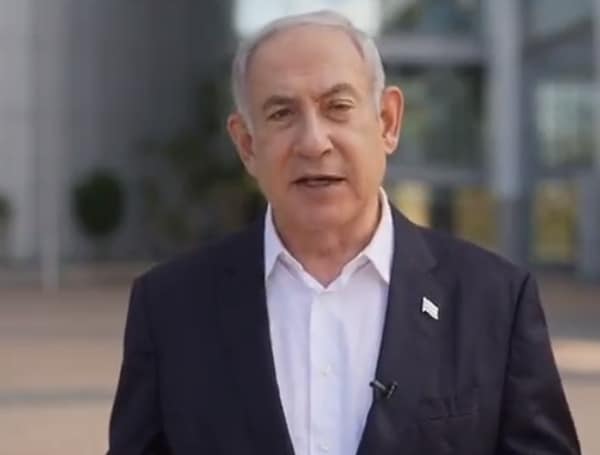
Israeli Prime Minister Benjamin Netanyahu vowed late Tuesday to retaliate against Iran, stating that “Iran made a big mistake tonight, and it will pay for it,” after Tehran launched a barrage of missiles into Israel. The escalation marks one of the rare direct confrontations between the two nations, which have largely been engaged in a shadow war for years.
Israel views Iran as its greatest adversary, pointing to Tehran’s calls for Israel’s destruction, its support for militant groups like Hezbollah and Hamas, and its contentious nuclear program. Iran has consistently denied Israeli accusations that it is seeking to develop nuclear weapons.
Read: Israel On High Alert As Iran Launches Missile Strikes, Urges Citizens To Seek Shelter
Just before the missile attack, a separate shooting incident in Tel Aviv left six people dead. Police confirmed that two suspects opened fire on a boulevard in the Jaffa neighborhood and were subsequently killed.
In the U.S., National Security Adviser Jake Sullivan described Iran’s missile attack as a “significant escalation.” He noted that the strike was largely “defeated and ineffective,” partly due to U.S. military assistance in intercepting several incoming missiles.
This is not the first time Iran has launched direct attacks on Israel. A previous strike in April saw many projectiles intercepted or failing to reach their targets. Iran claimed Tuesday’s missile strike was in retaliation for Israeli airstrikes that killed key figures, including Hezbollah leader Hassan Nasrallah and Iranian General Abbas Nilforushan, as well as Hamas leader Ismail Haniyeh, who was reportedly killed in Tehran in July.
Read: Florida Sen. Rick Scott: U.S. Must Hold Iran Accountable For Attacks On Israel
Earlier that same day, Israel had initiated limited ground operations against Hezbollah in southern Lebanon, a region already tense from rocket exchanges between the two sides. Israeli airstrikes and artillery fire hit several villages, with Hezbollah responding by launching rockets into Israel. Casualties from the strikes have not yet been reported.
While Hezbollah denied that Israeli forces had entered Lebanon, Israel claimed it had been conducting covert ground raids in southern Lebanon for nearly a year, striking at Hezbollah positions and leadership. These raids, if confirmed, would represent a significant setback for Hezbollah, which has already suffered from weeks of Israeli airstrikes that killed several top commanders, including Nasrallah.
In the face of growing tensions, Israel issued evacuation warnings to residents in southern Lebanon, urging them to move north of the Awali River, far beyond the U.N.-declared buffer zone established after the 2006 war. The extensive evacuation order has fueled speculation about how deep Israel might push its military operations into Lebanon as the conflict intensifies.
Please make a small donation to the Tampa Free Press to help sustain independent journalism. Your contribution enables us to continue delivering high-quality, local, and national news coverage.
Android Users: Download our free app to stay up-to-date on the latest news.
Connect with us: Follow the Tampa Free Press on Facebook and Twitter for breaking news and updates.
Sign up: Subscribe to our free newsletter for a curated selection of top stories delivered straight to your inbox.
